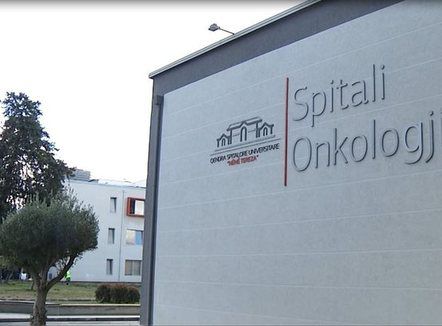
Editorial (aktualitet.al)
The recent scandal that has rocked the Oncology Hospital at the University Hospital Center of Tirana (QSUT) has exposed the deeply ingrained issues within Albania’s healthcare system. While the government’s attempts to pin the blame solely on medical practitioners are notable, the real responsibility lies much higher up, with the Ministry of Health and successive administrations that have failed to ensure a functional, safe, and modern healthcare infrastructure for the Albanian people.
Systemic negligence
The oncology scandal is not an isolated incident but a glaring symptom of systemic negligence and mismanagement within Albania’s healthcare sector. Over the years, the healthcare system has been marred by inadequate funding, outdated equipment, and a lack of oversight. The recent events at the Oncology Hospital have brought these issues to the forefront, demonstrating how far the system has fallen behind international standards.
The Ministry of Health, led by former Minister Ogerta Manastirliu, has come under fire for its role in this debacle. Deputy Albana Vokshi of the Democratic Party has been a vocal critic, demanding the resignation or dismissal of current leaders for their failure to address the chronic issues within the healthcare system. Vokshi’s call to action highlights a fundamental problem: these leaders were aware of the dire conditions but chose inaction over reform.
Misplaced blame
In a misguided attempt to manage the fallout, Minister Albana Koçiu publicly targeted the medical staff, suggesting punitive measures against doctors and pharmacists accused of malpractice. This move deflects from the broader accountability that rests with the Ministry and hospital administration. Koçiu’s remarks in Parliament were a clear effort to divert attention from the government’s failures. “A group of doctors and pharmacists playing with citizens’ lives is an act of behavior that warrants legal and moral punishment,” she stated, emphasizing that the Ministry had initiated investigations against these individuals.
While it is essential to address individual misconduct, the focus on scapegoating healthcare workers overlooks the systemic failures that have allowed such conditions to persist. The government’s approach echoes previous attempts by officials, like Elisa Spiropali, to downplay institutional responsibility in other scandals, further eroding public trust.
A broken system
The reality of Albania’s healthcare system is far removed from the political rhetoric. Reports from various inspections, including those by international bodies like the World Health Organization, have consistently highlighted the reliance on outdated equipment and the lack of necessary infrastructure. This neglect has not only compromised the quality of care but also endangered the lives of patients and medical staff.
Personal testimonies, such as that of the late Ina Kasimati, a teacher and activist who battled cancer, underscore the human cost of these systemic failures. Kasimati’s harrowing account of substandard conditions and inadequate medical care at the Oncology Hospital paints a grim picture of a healthcare system in disarray. Her letter accused the hospital administration of failing to provide essential treatments and highlighted the broader negligence within the healthcare sector.
Ethical breaches and corruption
Compounding the issues of mismanagement are instances of ethical breaches and corruption among medical professionals. The case of Dr. Edmond Gashi, accused of exploiting cancer patients by directing them to his private clinic for necessary treatments, has further tarnished the reputation of the healthcare system. His daughter, Megi Gashi, has actively defended him on social media, responding to public criticism with irony and threats, which only adds to the public outrage.
These incidents reveal a healthcare system riddled with corruption, where the interests of patients are secondary to the financial gains of a few. This pervasive corruption is not merely the fault of individual doctors but is enabled by a lack of stringent oversight and accountability from the highest levels of government.
The need for reform
The scandal at the Oncology Hospital is a wake-up call for the Albanian government. Comprehensive reforms are urgently needed to address the systemic issues within the healthcare sector. This includes modernizing medical equipment, improving hospital infrastructure, and ensuring that healthcare workers are adequately trained and supervised. Transparency and accountability must be at the core of these reforms to restore public trust.
The government’s response to the scandal has so far been inadequate, focusing on damage control rather than substantive change. As public outcry grows, it is imperative for the Ministry of Health and the broader government to take decisive action. The citizens of Albania deserve a healthcare system that prioritizes their well-being and upholds the highest standards of care.
Path forward
The Albanian government must confront the harsh realities of its healthcare system and take responsibility for the failures that have led to the current crisis. Blaming individual medical practitioners while ignoring systemic issues is a disservice to the public and undermines the potential for meaningful reform. Only through a comprehensive overhaul of the healthcare sector can Albania hope to provide the quality of care its citizens deserve and prevent such scandals from recurring in the future.
